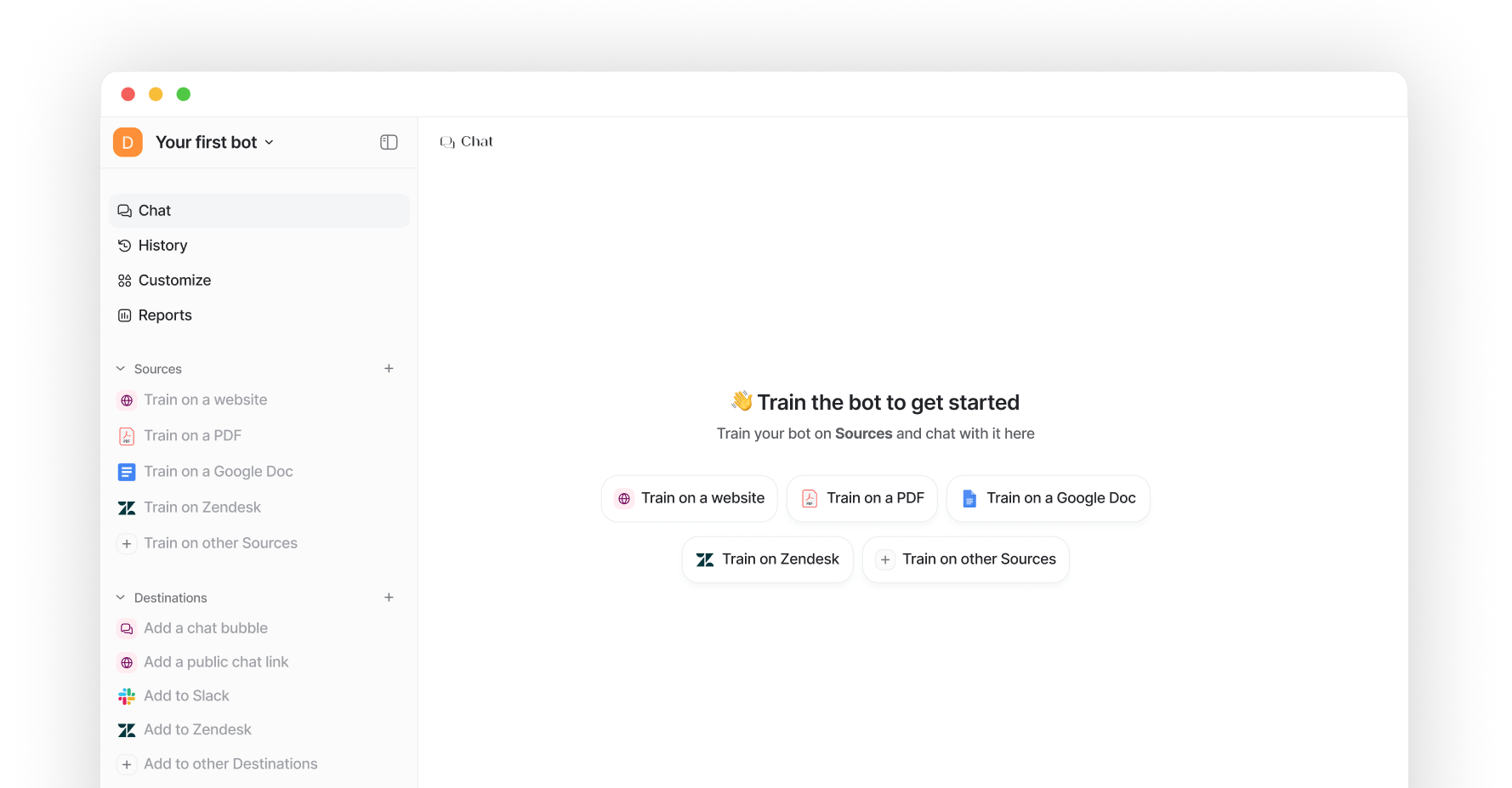AI, for all of its potential applications and excitement is having an outsized disruptive for one specific industry: customer support. And it’s not just about automating repetitive tasks.
With the advent of powerful language models and the Retrieval-Augmented Generation (RAG) approach, companies can now train AI systems on their help center content and provide accurate answers to customer queries within minutes, at effectively zero marginal cost.
This development has significant implications for the role of customer support professionals and the value they bring to their organizations, and how companies are shifting their support investment from a reactive to a more proactive model.

The inefficiency of traditional customer support
Before the adoption of generative models for customer support, companies faced significant challenges in managing the growing volume of customer inquiries. As businesses expanded, the number of support queries increased proportionally, forcing companies to scale their support costs by hiring more representatives. This linear scaling of support costs with volume was not sustainable, especially for rapidly growing businesses.
This traditional approach to customer support was not an effective use of support talent. Highly skilled representatives spent a significant portion of their time answering repetitive questions, leading to job dissatisfaction and a sense of unfulfilled potential. The repetitive nature of the work also contributed to high employee turnover and low employee satisfaction. As a result, companies had to continually invest in recruiting, hiring, and training new support staff, further increasing their support costs and impacting the overall efficiency of their support operations.

AI’s impact on customer support efficiency
With advancement in AI techniques such as Retrieval-Augmented Generation (RAG) and tools like eesel.ai, businesses can easily train AI models on their existing help center content, knowledge bases, and FAQs. This enables the AI to accurately understand and respond to a wide range of customer questions without the need for human intervention.
Consider a company’s typical support load and what the most common requests are likely to be. For a software company, their support volume is going to consist largely of repetitive and straightforward queries, like “How do I get my latest invoice?” or “How do I reset my password?”. These types of questions often make up the majority of support tickets, consuming valuable time and resources from support teams.
With AI-enabled support workflows in place, a substantial portion of a company’s support volume can be handled automatically, providing customers with instant and accurate responses. This largely eliminates the need for human involvement in addressing these common questions, freeing up significant time and resources for customer support teams to focus on more complex, high-value tasks that require human expertise and empathy. This shift towards more valuable and impactful work not only improves the efficiency of support operations but also enhances the overall customer experience by providing faster and more accurate responses to common inquiries.

The evolving role of customer support professionals
With AI taking care of mundane and repetitive tasks, customer support professionals are experiencing a shift in their roles and responsibilities. Companies are recognizing the immense value that these professionals bring to the table, with their wealth of institutional and product knowledge accumulated over time. As a result, many organizations are actively reallocating their support staff to higher-value activities that capitalize on their expertise and skills.
Customer support professionals are uniquely positioned to provide personalized guidance and support, leveraging their deep contextual understanding of the company’s products and services. This approach not only improves customer satisfaction, but also shifts support from being a business cost-center to a revenue function that can work to reduce churn and increase customer lifetime value.

Leveraging support expertise for customer success, product education, and community-building
Companies are increasingly recognizing the value of shifting their priorities and investing in more proactive initiatives, such as customer success, product education, and establishing community using a customer community platform, like Hall. This strategic shift is creating new opportunities for customer support professionals to make a significant impact beyond traditional support roles.
By proactively engaging with customers, creating comprehensive educational content, and actively participating in customer communities, support representatives can help customers derive more value from products and services, foster a more self-sufficient and satisfied customer base, and cultivate a loyal and advocacy-driven community.
These initiatives are not only beneficial for customers but also create new career paths and growth opportunities for customer support professionals, like facilitating scalable community-enabled support. As companies allocate resources and empower their support teams to take on more consultative and strategic roles, support professionals can expand their skill sets and contribute to the overall success of the business in more impactful ways.
This shift towards proactive approaches is transforming the role of customer support, enabling professionals to leverage their expertise to drive customer success, enhance product adoption, and build thriving customer communities.

The future of customer support
As AI continues to advance and take on more of the routine tasks associated with customer support, the role of human support professionals will continue to evolve. By focusing on higher-value activities such as customer success, product education, and fostering community discussions, support teams can drive business growth and customer satisfaction in ways that were previously not possible.
The future of customer support lies in the effective collaboration between AI and human expertise. By leveraging the efficiency and scalability of AI, while simultaneously empowering human support professionals to focus on high-impact tasks, companies can create a customer support experience that is both efficient and deeply personalized.
This approach not only benefits the bottom line but also creates a more engaging and fulfilling work environment for customer support professionals, who can now focus on making a genuine difference in the lives of their customers.




